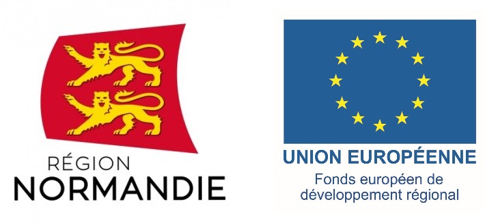
e-PAS

2020-2022: Regional project for professional development and educational ambition
The construction sector represents more than 600,000 companies. In 2017, it provided 1.146 million salaried jobs, more than 38% of which were for people over 45 years old. On the other hand, major construction projects are to come: the Greater Paris project and infrastructure and housing improvement projects (regeneration of railways, creation of high-speed train lines, urban renovation of priority neighbourhoods, airport extensions, raising the coastline, etc.). The Greater Paris project alone is expected to create or renew more than 27,000 jobs. In order to compensate for the massive retirements and the need for resources for the major construction sites to come, the recruitment of young people has become a major strategic challenge for the construction industry. The profession has set itself a target of a minimum of 100,000 young, qualified people to be recruited in the next 10 years. The need ranges from vocational qualified workforce to highly qualified engineers. This recovery in the building and public works sector can also be observed in other European countries.
Europe lacks qualified engineers
In order to meet this demand, higher education establishments specialising in construction and public works have been able to evolve to meet the demand, by developing their training offer and adapting the content to new technologies: BIM and collaborative work, expert systems and artificial intelligence in connected structures, materials with a low environmental impact... However, these changes in the world of building and public works, with the emergence of new, innovative and evolving professions, are not well known by young people, who often retain an outdated image of this sector of activity.
In terms of career guidance, there is no need to be complacent. Indeed, while it would be welcome if secondary school students spontaneously chose "occupations in demand", it is essential that the choice of their educational path be an intimately personal process, guided by their skills, their competences and their desired level of investment, but also by issues linked to their environment, their lifestyle, their personal balance, etc. Finding one's bearings is not easy.
Lack of professional projection, reorientations, fear of failure... our young people are lost
This is why it is essential that the discovery of sectors of activity, professions and training courses be easily accessible to young people, from secondary school onwards and throughout their education. In this respect, the introduction of the Avenir pathway has been a significant step forward, enabling the development of several schemes to help young people find their way through school and into higher education.
The advantage of these measures is that they form part of an active guidance process throughout the schooling of secondary school pupils, as they are an integral part of their training programme. They provide pupils with an initial toolbox for building their career plans. But for this generation Z (born between 1995 and 2010), school is no longer the only vector of knowledge. They are used to finding information online, on their computer, tablet or smartphone, at any time, anywhere and in an unlimited way.
THE E-PAS PROJECT TO PROMOTE PROFESSIONAL DEVELOPMENT AND ACADEMIC AMBITION
The proposed solution focuses on the construction sector, which is currently under pressure and a major source of jobs for managers and senior technicians. It consists of 3 actions, centred on professional activity and personal development, with the aim of stimulating commitment and self-efficiency in the career choice of students:
Action 1: A serious game, to discover the civil engineering sector, the different professions on offer and the training courses that allow access to them.
Action 2: MOOCs, to find out the level required to follow these courses, to assess oneself and to prepare oneself to enter them.
Action 3: An escape game, to understand the construction techniques, but also the importance of human relations and the spirit of collaboration that exist in this sector of activity.
To meet the expectations of the new generation of students, this solution is:
- free access and multimodal: composed of MOOCs, serious games and escape games;
- allows for real-life situations close to the reality of the company: co-constructed with professional actors;
- opens up the possibility of building a personalised pathway: co-constructed with various players in the world of education and higher education;
- promotes collective intelligence and teamwork: allows for contact with students in the targeted courses and young graduates.
Its structure is similar to that of the www.terminales2018-2019.fr website, but it is less general and more focused on the construction industry, with realistic situations that are close to the professional world.
These actions potentially target more than 500,000 new baccalaureate holders who enrol each year in higher education. They aim to reduce the rate of reorientation in the first year of university higher education, which was 36.5% in 2017.
This project is financed by the Normandy Region up to 50% for a total budget of 815,000 euros.
The partners
